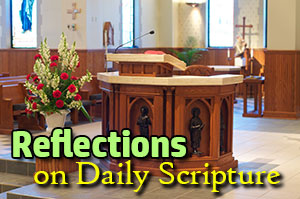By Neta Nwosu

Born a prince but fashioned by the Gospel, Anthony Cardinal Olubunmi Okogie stands today, at 89, as a colossus of the Catholic Church in Nigeria, a man whose life of service has shaped the nation’s spiritual, moral, and political landscape. From the sacred halls of the seminary to the chaos of the war front, from the pulpit to the streets of advocacy, Cardinal Okogie’s journey is one of unyielding faith, fearless truth-telling, and transformative leadership.
Royal beginning, holy ambition
Anthony Olubunmi Okogie was born on June 16, 1936, in Lagos, into a household where nobility met deep Catholic faith. His father, Prince Michael Okogie of Uromi (Edo State), and mother, Lucy Adunni Afolabi, a Yoruba woman, were devout Catholics. From this royal yet unassuming household emerged a boy destined not for the throne, but for a life of sacred service. Young Anthony kicked off his education journey at just three years old at St. Mary’s Private School, Lagos. But life wasn’t without its plot twists. His father’s job sent the family to Sapele, where he continued schooling at St. Patrick’s, before returning in 1950 to Holy Cross Cathedral School in Lagos.
In 1951, he enrolled at St. Gregory’s College under Father T.J. Moran’s guidance. But a deeper calling soon took hold. Three years in, precisely 1953, he took a bold leap from St. Gregory’s College to St. Theresa’s Minor Seminary in Ibadan. He later progressed to the Major Seminary of Saints Peter and Paul. His heart was set on the priesthood, and with the support of his beloved parish priest, Rev. Fr. John Kilbey, SMA, he never looked back.

Roman curveball
In 1963, halfway through his theology studies in Ibadan, his life took a dramatic turn. Archbishop John Aggey selected him, along with junior seminarian Felix Alaba Job, to further their studies in Rome. Despite his apprehension about his Latin, Okogie accepted the challenge. He restarted his theological training at the Pontifical Urban University and persevered. He later earned a degree in Divinity. Returning to Lagos as a deacon, he was ordained a priest on December 11, 1966, at the Holy Cross Cathedral, at the age of 30. His ministry began at the Cathedral, where he also served as chaplain and instructor at the prestigious King’s College, Lagos.
Back to Rome, war front duties and a career u-turn
Soon after ordination, Fr. Okogie returned to Rome to complete his licentiate. But the outbreak of the Nigerian Civil War brought him back. Archbishop Aggey recalled him and Fr. Job for pastoral service. Fr. Okogie resumed work at Holy Cross Cathedral and continued teaching at King’s College. During the war, he was commissioned as a chaplain in the Nigerian Army and posted to the war front in Port Harcourt. It was a role that required both courage and compassion amid chaos and bloodshed.
A rocky road to episcopacy
In 1971, at just 34, he was appointed Auxiliary Bishop of Oyo, a move that was met with mixed feelings. In Lagos, people were saddened by his transfer; in Oyo, resistance brewed. Oyo people? They called him “Kobo-Kobo” and rejected him for being too Lagos, and supposedly not Yoruba enough. “The Oyo people didn’t want me. They called me ‘Kobo-Kobo’ and said I didn’t understand Yoruba,” he recalled years later. But fate doesn’t ask for permission. On August 29, 1971, he was consecrated titular Bishop of Mascula and Auxiliary Bishop of Oyo at St. Benedict’s Cathedral, Oshogbo. Despite the tension, he kept his chin up and forged ahead. He served for only 14 months, but left a profound impact on both the community and himself.
Twist: ‘Kobo-Kobo’ returns as Lagos boss
Following Archbishop Aggey’s death in 1972, succession rumours swirled. Bishop Okogie learned of his transfer back to Lagos through the 7 a.m. news, relayed by his secretary, Rev. Fr. Anthony Ishola. Ironically, the Oyo faithful, who once resisted his leadership, protested his departure. He reminded them: “You didn’t want me in the first place.” Returning to Lagos as Auxiliary Bishop to Bishop Saliu Sanusi, he resumed service with quiet resolve.
The Archbishop’s mantle
Just months later, Bishop Okogie received a letter from Apostolic Delegate Archbishop Amelio Poggi appointing him Archbishop of Lagos. He was enthroned on June 17, 1973, a day after his 37th birthday. He would hold that position for an astonishing 39 years. From chaplain in a war zone to ‘Kobo-Kobo’ bishop, and ultimately Nigeria’s youngest Catholic Archbishop at the time—his rise was nothing short of divine orchestration.
Builder of Churches, defender of doctrine
When he assumed leadership, Lagos Archdiocese had just 15 parishes. By the time he retired in 2012, that number had grown to over 100. Archbishop Okogie wasn’t just a builder of Churches; his legacy extended beyond numbers. He was a shepherd who upheld the integrity of Catholic doctrine amid the wave of Pentecostal influence. He visited parishes personally, engaged both clergy and laity, and maintained a visible and pastoral presence.
Voice of courage in an age of fear
During Nigeria’s turbulent military era, Archbishop Okogie became a fearless voice for justice. As President of the Catholic Bishops’ Conference (1988–1994) and later of the Christian Association of Nigeria (1994–2000), he denounced oppression, corruption, and rights violations. He opposed the seizure of mission schools and consistently advocated for justice and human dignity. At a time when dissent could cost a life, Okogie stood firm. In 2021, at age 84, he penned a scathing letter criticising false claims about Boko Haram’s defeat: “Any government spokesman who says Boko Haram has been defeated will be answerable to God for every life they destroyed.”
Hero of the oppressed
Archbishop Okogie has long championed causes of the poor, marginalised, and oppressed. His advocacy reached across religious lines, most notably when he volunteered to take the place of Safiya Hussaini Tungar-tudu, a Muslim woman sentenced to death by stoning under Sharia law in 2002. The case sparked global outrage. In a letter dripping with humanity and courage, the Archbishop called on Sharia court leaders to act with mercy. His intervention contributed to her eventual release, underscoring his deep commitment to justice and compassion.
Builder of Institutions
Beyond activism, Cardinal Okogie has been a transformative builder of institutions. Under his leadership, the Augustine University, St. Raphael Divine Mercy Hospital, and St. Augustine’s College of Education were established, expanding access to quality education and healthcare. He also spearheaded the creation of a world-class dialysis centre and a water treatment plant to serve underserved communities. Since 1973, he has championed education within the Archdiocese, establishing numerous primary and secondary schools, and initiating Nigeria’s first privately owned College of Education.
The making of a Cardinal
In 2003, Pope John Paul II elevated him to the College of Cardinals as Cardinal Priest of Santa Maria del Monte Carmelo a Mostacciano. He participated in the 2005 and 2013 conclaves that elected Popes Benedict XVI and Francis, respectively. Despite his global stature, he remained grounded. “I don’t know how I became a cardinal,” he once said. “Those who see you know you better than yourself.”
A humble servant, a model Priest
Reflecting on his vocation, he once said: “As a child, I watched the priests. I was an altar server. I saw how they prayed and led Mass. I thought, if they could do this, maybe I could too.” He did more than just become one of them—he became a shining example. A priest for almost 59 years, a bishop for 54, and a cardinal for 22, his legacy is one of extraordinary courage, relentless service, and unwavering faith. In a world desperate for authentic leadership, his life offers a blueprint – rooted in principle, powered by compassion, and unwavering in conviction.
A living legacy
As Cardinal Okogie celebrates his 89th birthday and 54th episcopal anniversary, he is far more than a retired prelate, he is a national icon. In a time desperate for integrity, his life remains a guiding light— rooted in principle, steered by conscience, and sustained by grace.
Happy Birthday, Your Eminence. You remain the enduring conscience of the Church, Nigeria’s moral compass, and a shepherd to generations.
See Other News & Events »











